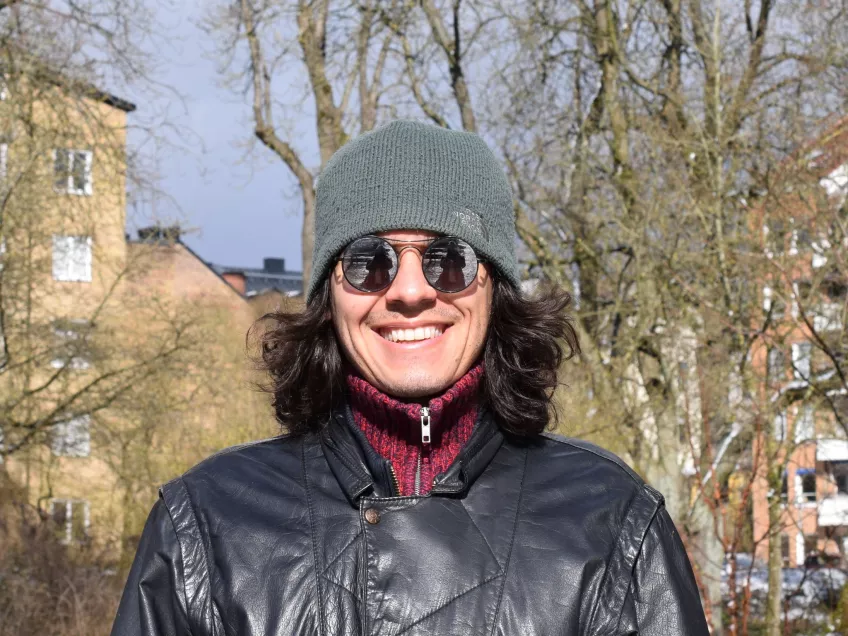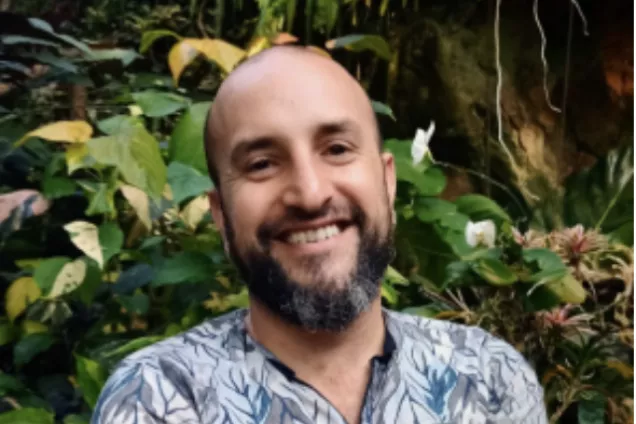In her research, Valentina Lomanto studies the role of women environmental defenders in mobilising transformations towards more just and sustainable futures. At COP, she will observe the dialogue between different stakeholders, including environmental defenders, policy makers and NGO´s regarding the implementation of the ‘Escazu Agreement’ both on national and regional level. One day at the COP, 23rd of October, is specifically devoted to these discussions, under the thematic focus of environmental justice and human rights.
– I am interested in how different knowledges and experiences related to biodiversity conservation, and cultural and environmental protection enter into dialogue in this political space. How is this dialogue expressed in the way states are complying with the Kunming-Montreal Biodiversity Framework?
– The fact that indigenous advocates and leaders managed to include the recognition of indigenous and traditional territories as so called 'effective area-based conservation measures' within the 30/30 goal (Target 3), implies that ethnic communities are finally beginning to be recognised as key actors in the global struggle against biodiversity loss. I hope to see this target and goal implemented by the state parties.
Key issues: mobilization of finance and implementation
PhD students Carlos Vélez and Juan Samper are also researching with indigenous communities in the Colombian Amazon. They are interested in following some of the key issues at COP: mobilization of finance necessary for implementation, and the progress in relation to countries National Biodiversity Strategies and Action Plans (NBSAP).
– If you are allowed to have a utopian dream it would be that the COP delivered an agreement to counteract national debt in exchange for nature. The external debt in Colombia is currently at around half of GDP. If that money could be used for measures to strengthen biodiversity and livelihoods it would make a big difference, says Juan Samper.
Valentina Lomanto agrees, adding that the Colombian governments’ decision to position itself on this issue is very relevant, given that biodiversity loss cannot be viewed or tackled as a challenge that individual states must face, but as a global problem connected with the geopolitical and global economic order. In this status quo countries like Colombia incur huge external debt and have to comply with macroeconomic policies that put them in a disadvantaged position, for example having to keep extracting and exporting raw materials as a source of revenue, and with this reproducing the destruction of livelihoods, worldviews and ecosystems.
– What Colombia will be proposing is a radical change in this status quo, addressing the coloniality of power that shapes the global political economy, says Valentina Lomanto.
Carlos Velez highlights the close connection between climate change interests and biocultural diversity: biocultural megadiversity is closely related to tree forest coverage – especially in indigenous territories in the Amazon. In this area, many companies are also active within carbon market. They are aiming to offset global greenhouse gas emissions through certified untouched rainforest areas within indigenous territories. How will Indigenous representation protect their livelihoods and rethink the international interest focused in canopy coverage?
– There are many interests at play in the Amazon; and the protection of biocultural diversity doesn’t align with current carbon offsetting agreements. For me, at least, this will be an area to closely monitor; especially in the context of coherent local management and governance that sees territories as sociecological biocultural systems.
Colombia on the right track?
Apart from doing research in Colombia, Valentina, Juan and Carlos are also Colombians themselves. They all agree that now is the perfect time to host COP in Colombia. Although the current government has not sent in its National Biodiversity Strategy and Action Plan, it has a strong motivation to protect life and biodiversity.
Juan Samper highlights the recent announcement of the Colombian government in relation to Indigenous Peoples’ rights.
On 16th October, the government signed a decree that advances Indigenous Peoples’ right to self-govern in their territories, particularly expanding their role as environmental authorities. According to Juan, this is a historical debt that the state has had with Indigenous Peoples for decades. It could herald a landmark change in power relations within the Amazon, potentially having a big impact on the protection of biodiversity. Indigenous groups will be able to make decisions about how to manage their territory and have agency to coordinate with other authorities in relation to the protection of flora and fauna according to their own cosmologies, ancestral knowledges, and laws.
– This new policy will not be the solution to the plight of human rights defenders in the Amazon, but it will go some way towards righting the power balance in the region. If we see additional ambitious follow up from the COP, at least there some positive developments, both for biodiversity and for Colombia itself.
The COP 16 -Sixteenth meeting of the Conference of the Parties to the Convention on Biological Diversity will be held in Cali, Colombia, 21 October–1 November 2024.
The Escazú Agreement, which originated at the 2012 United Nations Conference on Sustainable Development, is an international treaty signed by 25 Latin American and Caribbean nations concerning the rights of access to information about the environment, public participation in environmental decision-making, environmental justice, and a healthy and sustainable environment for current and future generations.



